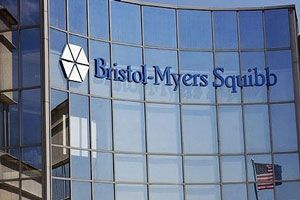Priority Review Granted to Nivolumab in Melanoma
The FDA has assigned a priority review designation to nivolumab for pretreated patients with advanced melanoma, setting an action date for the drug as March 30, 2015.
Bristol-Myers Squibb

The FDA has assigned a priority review designation to nivolumab (Opdivo) for pretreated patients with advanced melanoma, setting an action date for the drug as March 30, 2015.
The application for nivolumab was based on phase III data from the CheckMate-037 trial that compared the PD-1 inhibitor with dacarbazine or carboplatin/paclitaxel in previously treated patients with unresectable or metastatic melanoma. Patients in this study could have received prior treatment with ipilimumab (Yervoy) or a BRAF inhibitor. Results from this study will be presented at the 2014 ESMO Congress on September 29, 2014.
In May 2014, nivolumab was granted a breakthrough designation for patients with Hodgkin lymphoma. In conjunction with the FDA, the European Medicines Agency (EMA) also granted an accelerated assessment to the medication. Additionally, along with the priority review announcement, Bristol-Myers Squibb (BMS) noted that nivolumab had received a breakthrough therapy designation as a treatment for patients with previously treated melanoma.
“The filing acceptance and validation of our Opdivo applications by the FDA and EMA represent significant steps forward in our commitment to delivering innovative immuno-oncology treatments to patients with cancer around the world,” Michael Giordano, MD, senior vice president, Head of Oncology Development, Bristol-Myers Squibb, said in a statement. “Additionally, the breakthrough therapy designation and the accelerated assessment for advanced melanoma underscore our focus on developing treatments for diseases in which a significant unmet medical need remains.”
Earlier this year, BMS announced that nivolumab extended overall survival (OS) when compared with dacarbazine in untreated patients with advanced melanoma in the phase III CheckMate-066 trial. Following the demonstration of an improvement in survival at the interim analysis, BMS made the decision to unblind the study and allow patients in the dacarbazine arm to crossover.
In this trial, 418 patients were randomized in a 1:1 ratio to receive intravenous nivolumab at 3 mg/kg every two weeks or dacarbazine at 1000 mg/m2 IV every 3 weeks. The primary endpoint of the study was OS, with secondary endpoints focused on progression-free survival, objective response rate (ORR), quality of life, and whether PD-L1 expression was an effective predictive biomarker for OS. Full results from this study are expected soon.
“The outcome of CheckMate-066 is an important milestone in the field of immuno-oncology as it represents the first well-controlled, randomized phase III trial of an investigational PD-1 checkpoint inhibitor to demonstrate an overall survival benefit,” Giordano said in a press release when the promising findings were announced. “Bristol-Myers Squibb is committed to continuing to lead advances in immuno-oncology and to executing our strategy to provide patients with the best opportunity to achieve the potential for long term survival.”
A long-term survival update from a phase I study presented at the 2014 ASCO Annual Meeting demonstrated a 3-year OS rate with single-agent nivolumab of 41%. This study examined nivolumab in 107 ipilimumab-naive patients with previously treated advanced melanoma. The ORR was 32% with median response duration of 22.9 months.
Nivolumab continues to be explored across a variety of settings, including non-small cell lung cancer (NSCLC) and renal cell carcinoma. Earlier this year, BMS announced that it planned to initiate a rolling submission for nivolumab as a third-line treatment for patients with squamous cell NSCLC. This submission is expected to be complete by the end of the year.
In July 2014, nivolumab gained approval in Japan as a treatment for patients with unresectable melanoma, marking the first international approval for a PD-1 inhibitor.
In early September, the FDA approved the PD-1 inhibitor pembrolizumab for advanced melanoma, sparking a lawsuit over patents for the groundbreaking technology. BMS' marketing partner Ono Pharmaceuticals is also a plaintiff in the suit.